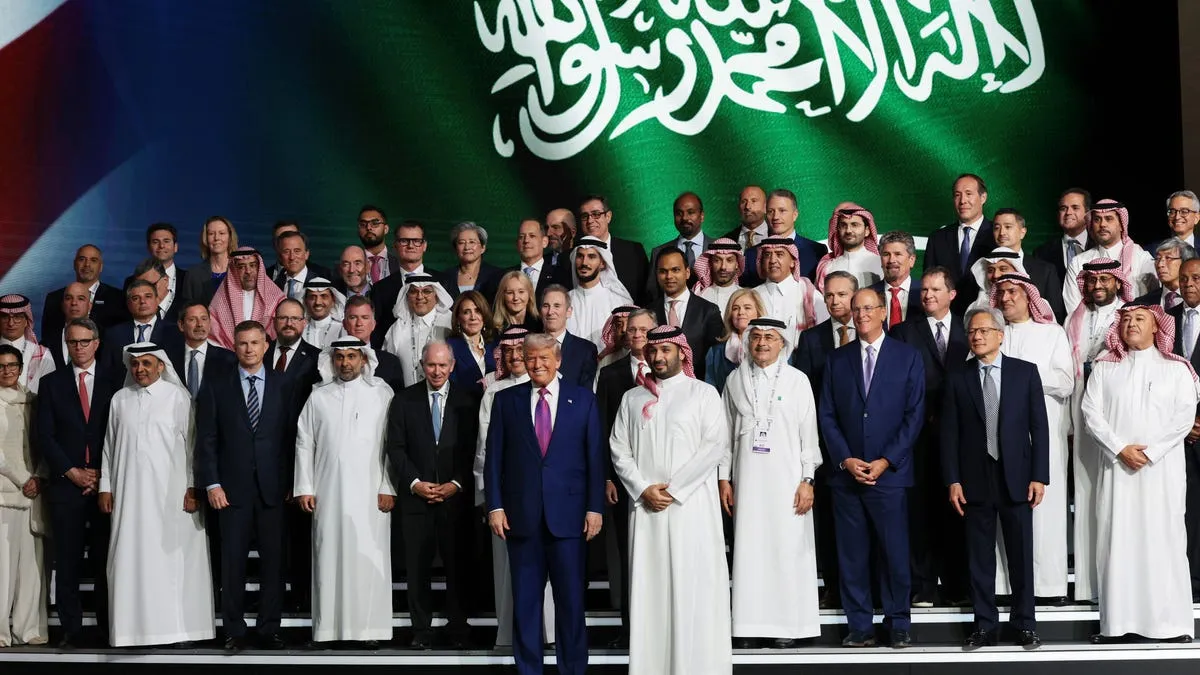
The latest developments in the global AI arms race indicate that the next significant front is not Beijing, but rather Riyadh. According to a recent memo from Wedbush, this week’s U.S.-Saudi forum marks a pivotal shift in the dynamics of global tech power. President Donald Trump arrived in the Saudi capital on Tuesday, receiving a lavish welcome, complete with an escort of six Royal Saudi F-15 fighter jets.
During his visit, President Trump was accompanied by a host of influential figures from the U.S. tech industry. Notable attendees included Nvidia CEO Jensen Huang, Amazon's CEO Andy Jassy, OpenAI CEO Sam Altman, and Alphabet’s Ruth Porat. This convergence of tech giants underscores the importance of the discussions taking place in Riyadh.
Wedbush has projected that the AI opportunity in Saudi Arabia could contribute an astounding $1 trillion to the total global AI addressable market. This figure highlights the Kingdom's ambition to become a leader in artificial intelligence as part of its broader Vision 2030 initiative, aimed at diversifying the economy away from oil dependency.
The focal point of the U.S.-Saudi forum was a groundbreaking partnership between Nvidia and Saudi Arabia’s sovereign AI initiative, known as Humain. Under this significant deal, Nvidia is set to provide 18,000 next-generation Blackwell chips to power the Kingdom's inaugural supercomputer. Over the next five years, Saudi Arabia intends to establish a network of AI data centers designed to train and deploy sovereign models.
The announcement of this partnership had an immediate impact on Nvidia’s stock, which surged nearly 6% on Tuesday and climbed an additional 3% prior to Wednesday's opening bell. This two-day rally highlights the market's positive response to the news, amounting to an increase of approximately $300 billion in market value for Nvidia—an amount equivalent to Palantir’s entire market capitalization.
In the backdrop of these developments, the regulatory environment is shifting significantly. Just days before the trip, the U.S. Commerce Department rescinded the Biden-era AI Diffusion Rule, a comprehensive framework that would have imposed tiered export controls on multiple countries. As reported by Bloomberg, the Trump administration is poised to replace this framework with a more flexible and transactional approach, easing restrictions for close allies like Saudi Arabia and the UAE while tightening them for less favored nations, including China and Malaysia.
While the news surrounding the U.S.-Saudi partnership appears largely positive, it introduces layers of uncertainty. Critics point to ethical and strategic risks associated with providing sovereign AI capabilities to authoritarian regimes. The shift from a rules-based system to case-by-case dealmaking may lead to fragmented laws and regulations concerning AI, raising concerns about oversight and governance.
As one AI Cold War potentially eases, another may be on the horizon. “Who controls A.I. is the geopolitical question of our time,” stated Jim Secreto, a former deputy chief of staff at the Commerce Department, in an interview with the New York Times. For the Trump administration, the focus appears to be shifting from containment strategies to establishing beneficial deals with key allies.
As the landscape of AI technology continues to evolve, the implications of these developments will be closely monitored by industry experts and geopolitical analysts alike.